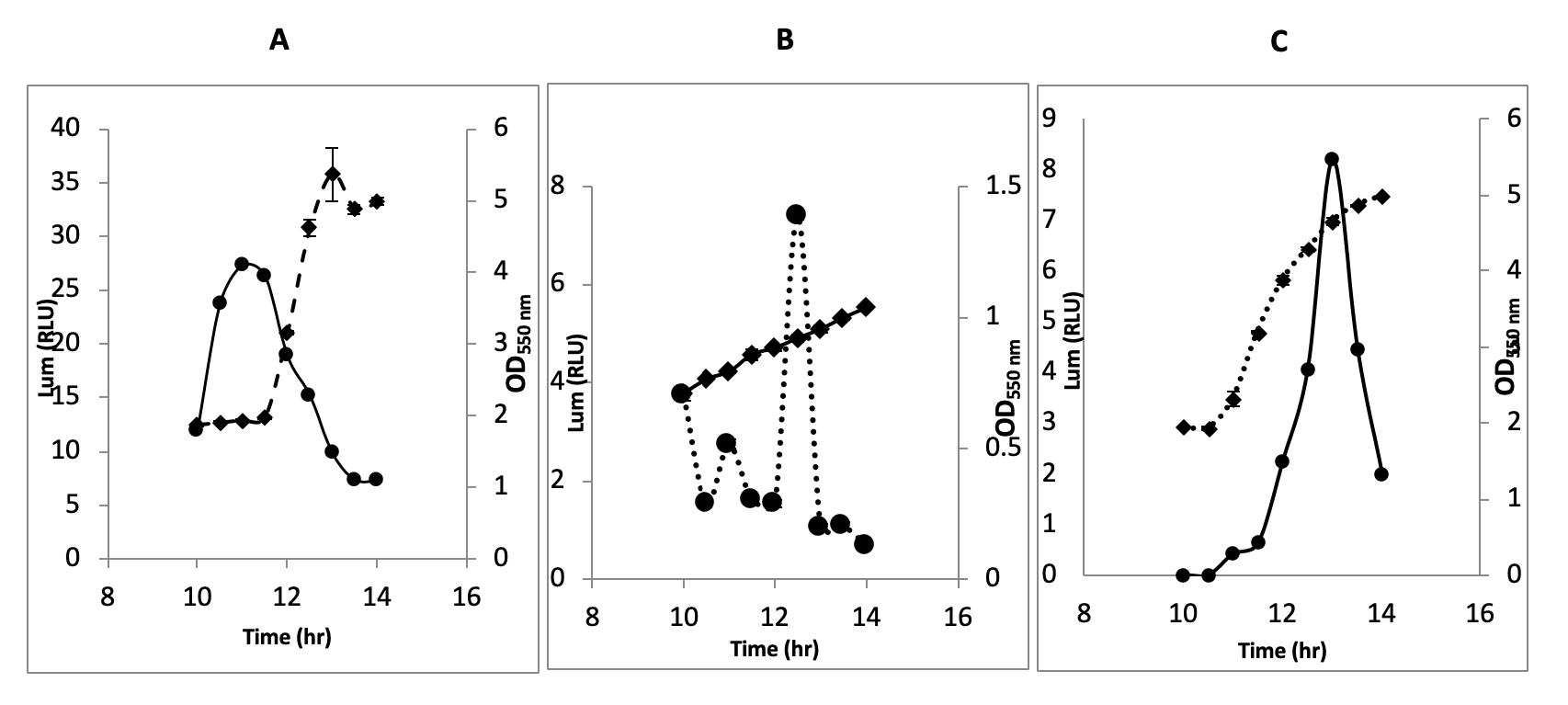 |
|
Routine analytical methods are constrained in the speed of application, sample throughput and inability to determine the right bioavailable loading of pollutants.
Microbial biosensor technology resolved these constraints by o ering the most rapid, sensitive, reliable and cost-e ective technology, especially in a bioavailable
context. This study describes the growth characterisation, optimisation and induction bioassay of three di erent lux-marked biosensors, thus testing their responses
to doses of target hydrocarbons (naphthalene, toluene, Isopropylbenzene) and solution of mixed hydrocarbons. These biosensors, Pseudomonas fluorescence HK44,
Escherichia coli HMS174 and Pseudomonas putida TVA8 harbours luxCDABE reporter genes coupled to induction by hydrocarbons. Biosensors harvested at optimal
exponential phase and induced with hydrocarbon using the optimised assay conditions are highly sensitive and responsive to their inducers in a proportionate dosedependent
manner. The established dose responses of these catabolic biosensors signify the prospect of extrapolation for estimating the genuine contamination loading
of pollutants for environmental relevance. However, several factors may contribute to the quenching e ect at high concentration of inducers. Robust responsiveness
to mixed hydrocarbon solution has been also realised accentuating its feasibility in analysing real environmental samples containing heterogenous pollutants. This
study emphasises the suitability of bioluminescent bacterial biosensors for pollutants analysis and notably the detection of soluble bioavailable fractions of diverse
hydrocarbons, hence, serves as a reliable bioindicator of hydrocarbon pollution in an environment. Even so, the real value of biosensors is for a suite of ecologically
justified biosensors to be applied in complementary combinations with other focused analytical or chemical methods for broad and resourceful inference.
Keywords: Biosensors, bioreporters, luxCDABE, bioavailability, naphthalene, toluene, isopropylbenzene, hydrocarbon.
|
|
 |

